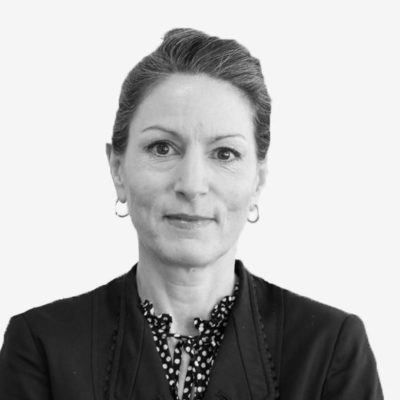Economic Crime on Top of the Agenda at Almedalen
Experts from law enforcement and private sector meet to discuss the relationship between economic and organised crime at Almedalen. At a panel arranged by the Swedish economic crime Authority, Louise Brown from Advisense Sweden, joined to discuss the current state and its potential impact.

I am pleased to see the increased prioritisation of this issue area and the level of commitment and dedication presented by important stakeholders in both the private and public sectors. More information-sharing and collaboration is needed, and there is a wealth of experience and expertise that can be drawn upon by many more organisations. Critical at this stage is to take effective measures quickly to turn the trend around
Louise Brown, Director and anti corruption expert at Advisense
On Tuesday at Almedalsveckan 2024, The Swedish Economic Crime Authority (EBM) arranged a seminar entitled “Economic crime – the Lifeblood of Organized Crime”. Advisense Louise Brown was invited to join the panel together with Sara Persson, crime prevention specialist at the Swedish Economic Crime Authority Jerker Asplund, deputy chief prosecutor at the Swedish Economic Crime Authority and Jale Poljarevius, head of intelligence at the Police Authority, Region Mitt.
The seminar is one of two arranged by EBM at Almedalen this year. Fraud prevention, economic and organised crime is high on the program with seminars arranged by several organisations, including Sparbankernas Riksförbund, Svensk Handel and the Nordic Council of Ministers.
The common backdrop is how economic crime is becoming more integrated with organized crime. Criminal networks are increasingly using legal entities to operate, generate illegal revenue and appropriate strategic positions in different sectors. The criminal economy is both scaling up and diversifying, to spread risks, secure revenue and continuously find new ways to launder money.
The panel drew the attention of the audience to how organised crime is running “economic crime factories” as part of large schemes. Economic crime factories, fake invoice factories and crime as a service are as such not new, but what is new is the scope and scale, the diversification into more sectors to get criminal cashflow, build capital and expand the criminal economy further.
During seminar, the panel warned against the potential quick shift towards more violence being used by organised crime. So called enablers, lawyers, brokers, accountants and other white collar third parties who work on behalf of organised crime will likely find themselves unable to discontinue their criminal collaborations. The line between collaboration to blackmail and violence is fine, and society at large urgently needs to understand both the elaborate structures of organised crime and the imminent threat that any engagement with criminal actors can quickly result in.
Louise Brown noted the importance of understanding the structures behind organised crime. While economic crime is generally financially motivated illegal activity by individuals or entities, organised crime involves structured groups running a range of criminal enterprises to gain power and profit. Three common denominators, or overlaps between economic and organised crime are money laundering, fraud (to generate revenue) and corruption (to conceal or enable crime).
There is a lot of statistics being circulated on the negative trends and annual growth of various forms of e.g. fraud and corruption. If the doors are left open to criminals, it is walk-over. Data is key, more data needs to be shared, and there continuous to be a great need to understand the nature and complexity of economic and organised crime.
Also on Tuesday, EBM proposed a review of increasing penalties for exceptionally serious economic crimes. According to EBM, the legislation needs to be adapted to the current nature of criminal activities, in particular in light of how organised crime is systematically and on large scale using legal entities as engines for economic crime.
The proposed review of increased penalties for exceptionally serious economic crime was positively received in the panel, and was further discussed in the context of detection and reporting. According to the theory of the fraud triangle, there are three factors that decide whether a crime is committed, namely the risk of getting caught, the consequence if caught, and finally, rationalisation of why an apparently unethical or unlawful act is undertaken.
More focus is needed on has worked and what has not worked, what processes and resources that have factually been established, what existing tools that are effectively implemented, according to Louise Brown. What society, both private and public sectors should focus on just as much is how to increase the share of companies and public sector organisations that have robust management systems in place for robust prevention, controls and continuous follow up.
The seminar was recorded and is available here.
Read more about our Financial Crime Prevention offering.
